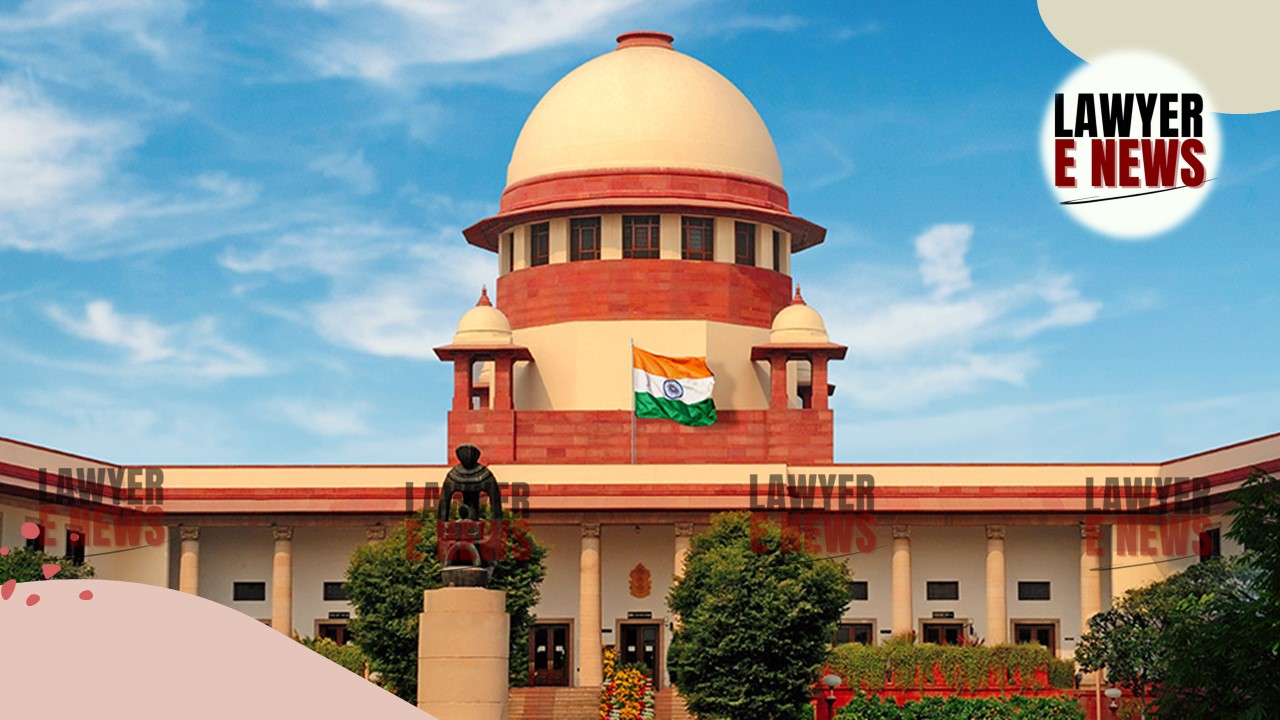-
by sayum
17 February 2026 8:32 AM



“Rejection of the Plaint at Threshold Without Evidence Is Unsustainable”:- Supreme Court of India addressing the limits of judicial power under Order VII Rule 11(d) of the Code of Civil Procedure, 1908. The Court ruled that when a plaintiff specifically pleads the date of knowledge of a disputed transaction, limitation becomes a mixed question of law and fact, and the plaint cannot be summarily rejected at the threshold stage.
"This Court is of the considered view that the issue as to whether the appellant had prior notice or reason to be aware of the transaction... are matters that necessarily require appreciation of evidence," observed the Bench comprising Justices J.B. Pardiwala and R. Mahadevan.
Plaintiff Challenged Property Transfers Allegedly Made Without Authority
The case arose from a civil suit filed by P. Kumarakurubaran before the Principal District Court, Chengalpet, in 2014. He sought multiple declaratory and injunctive reliefs, claiming ownership over a disputed parcel of land that was allegedly transferred by his father — acting under a registered Power of Attorney — to family members without authority.
According to the plaint, the appellant had been assigned the property by the government in 1974 and had constructed a dwelling upon it. He had executed a Power of Attorney in favour of his father solely for purposes of construction and allied activities. Contrary to this authority, the father allegedly executed a sale deed in 1988, which led to further transactions including a settlement deed in 2012 and a general power of attorney in 2012.
The appellant asserted that he became aware of the impugned sale only in 2011 and subsequently filed police complaints and objections before registering authorities. The suit was filed on December 3, 2014, seeking to annul the chain of documents and prevent further alienation or development of the property.
High Court Rejected the Suit as Time-Barred Without Trial
During the pendency of the suit, the defendants filed an application under Order VII Rule 11 CPC, seeking rejection of the plaint on grounds of undervaluation and limitation. While the trial court rejected this application, holding that triable issues existed, the Madras High Court reversed this decision and rejected the plaint on the sole ground that it was barred by limitation under Article 59 of the Limitation Act, 1963.
The High Court reasoned that the suit had been filed more than three years after the appellant allegedly obtained knowledge of the 1988 sale deed.
“Limitation Cannot Be Decided Summarily When Knowledge Is Pleaded”: Supreme Court
Setting aside the High Court’s ruling, the Supreme Court held that the trial court had rightly refused to reject the plaint because the issue of limitation depended on the credibility of the appellant’s version of when he acquired knowledge of the sale.
"It is impermissible for the Court to assess the truth or falsity of these averments or to summarily reject the suit on the ground of limitation," the Court remarked.
Referring to the settled legal position, the Court cited Chhotanben v. Kirtibhai, Daliben v. Prajapati, and Salim D. Agboatwala, reiterating: “When the question of limitation involves disputed facts or hinges on the date of knowledge, such issues cannot be decided at the stage of Order VII Rule 11 CPC.”
The Court pointedly noted that the High Court’s approach amounted to a “misapplication of the well-established principles” under the CPC: “The High Court proceeded to reject the plaint solely on a prima facie assumption... without undertaking any examination as to whether the plea regarding the date of knowledge was demonstrably false or inherently improbable.”
The judgment clarified that even a registered document can be challenged beyond the standard limitation period if the plaintiff reasonably pleads lack of knowledge and the same is backed by events that occurred shortly after gaining awareness.
Power of Attorney Was Specific — Did Not Authorize Sale
On the substantive point regarding the Power of Attorney, the Supreme Court emphasized: “There is no express clause authorizing his father to sell the suit property... Yet, the appellant’s father executed a sale deed in favour of his granddaughter, going beyond the scope of the Power of Attorney.”
Such conduct, the Court said, raised serious doubts about misuse of authority and potential fraud, which could not be dismissed without a full trial.
“These are serious and contested issues that necessitate a detailed adjudication based on oral and documentary evidence,” the judgment said.
In conclusion, the Supreme Court ruled: “Accordingly, we are of the view that the plaint discloses a cause of action which cannot be shut out at the threshold... Rejecting the plaint where substantial factual disputes exist... is legally unsustainable.”
The Court restored the order of the trial court and directed that the suit be tried on merits. It specifically instructed that the trial court shall proceed “without being influenced by any of the observations made by the High Court.”
The judgment of the High Court dated 03.09.2020 was set aside, and the order of the trial court dated 04.10.2017 was restored.
“This appeal stands allowed in the above terms. There shall be no order as to costs,” the Court concluded.
Date of Decision: April 29, 2025
